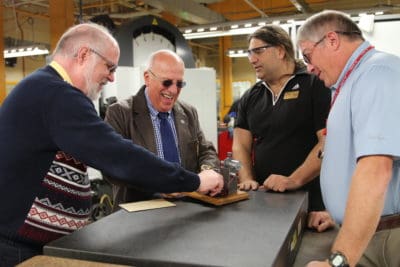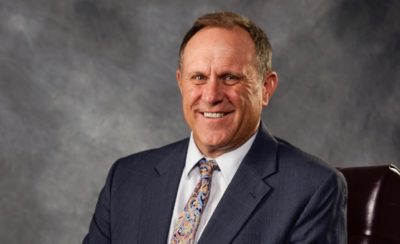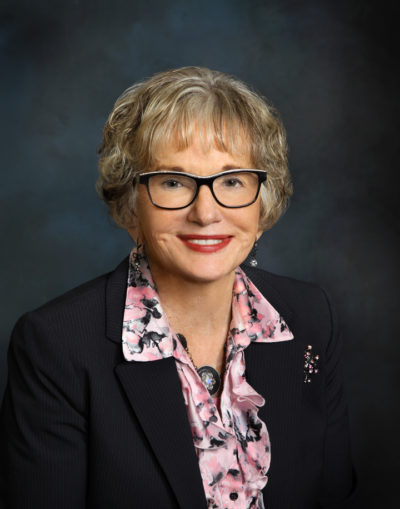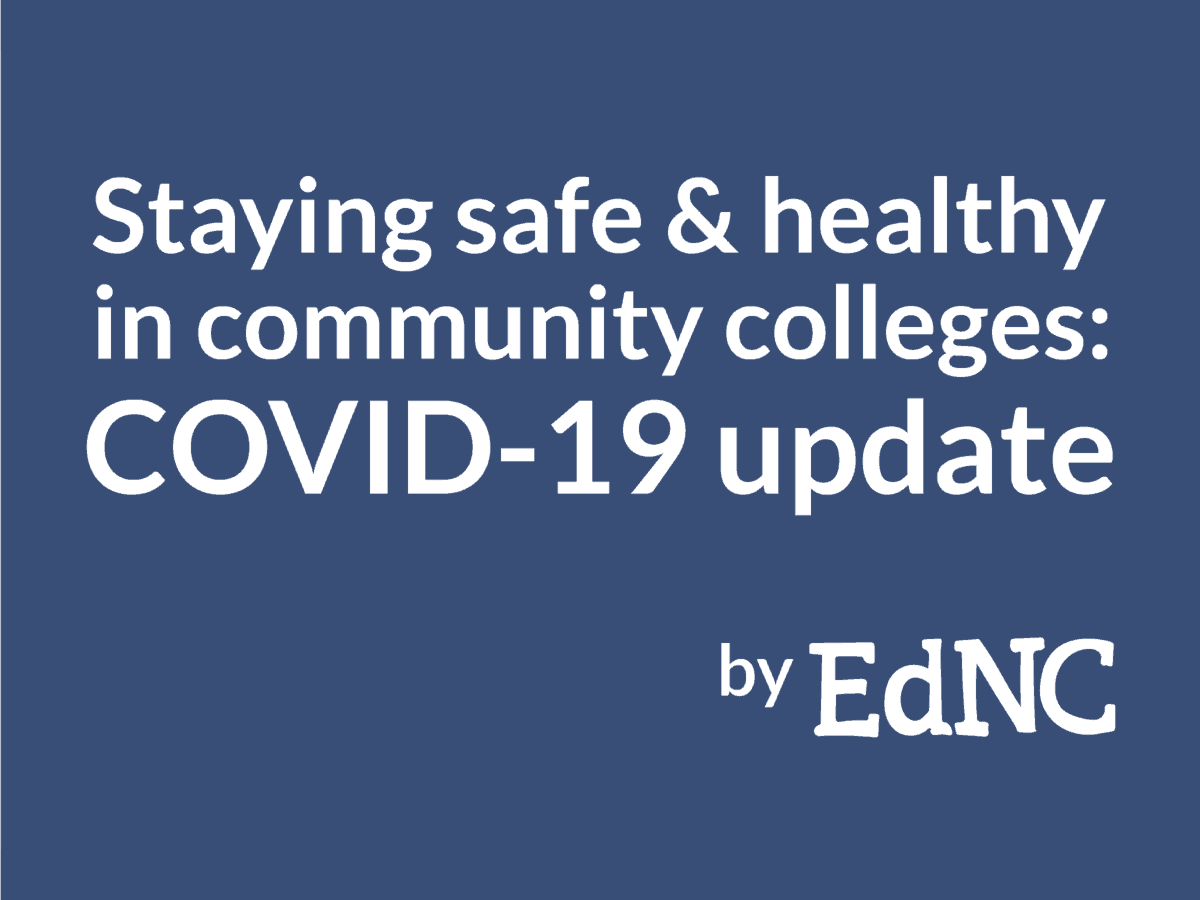
This article includes updates from the state board meeting today, the letter President Peter Hans sent earlier this week along with the “numbered memo,” the announcement of three new presidents, and a story about how Forsyth Tech launched a program to maintain personal connections with students and faculty.
The State Board of Community Colleges voted to approve five temporary amendments to help with the impact of COVID-19 in a conference call meeting today.
The amendments will be operational for 180 days or until the State Board rescinds them.
“I know everyone is feeling the anxiety of this public health crisis, and it has been a challenging time for us because it is a moving target,” said Community College System President Peter Hans.
The amendments do the following:
- Give colleges the same flexibility they have during adverse weather to make up instructional days
- Allow colleges to “apply tuition, registration fees, and others fees” that students paid for spring 2020 classes to future courses if they can’t complete their classes
- Let colleges use student activity fees to mitigate COVID-19 impacts
- Allow colleges to use instructional technology fees to mitigate COVID-19 impacts and let them use those fees to buy computers and other forms of technology for employees
- Let colleges use excess revenue from bookstores to mitigate COVID-19 impacts
Earlier this week Hans advised community colleges around the state to move everything possible online, allow employees to work remotely, and wind down in-person instruction (see the letter below). He also announced that he has set up a “COVID-19 Response Committee” for the system.
Hans said at the board meeting that the system office is keeping close track of colleges and their statuses. While he is recommending that all community colleges cease in-person instruction, he said there is an exception being made for public health and public safety instruction. Because the state is likely to need more workers in the areas of nursing, law enforcement, fire, and emergency medical and rescue as the crisis continues, those classes should continue in person. But they should only do so if colleges are prepared, it can be done safely, and students agree.
Hans said that the COVID-19 crisis amounts to a “months-long hurricane,” but that community colleges will endure.
“I think the bottom line for us is we want to keep our focus on the fact that community colleges are incredibly resilient,” he said. “We adapt to community needs, we adapt to student needs, no matter how difficult.”
Ask & Answer | President Peter Hans letter
Many of you asked EdNC for the letter President Peter Hans sent out via email on March 17 and the “numbered memo.” Here you go…
Presidents,
Thank you again for your leadership, flexibility, and friendship during this unprecedented time. I’m writing this afternoon to share updated guidance from Governor Cooper and State Public Health Director Dr. Betsy Tilson, recap the recommendations I made to you all yesterday afternoon, and preview an advance copy of a press release (attached) which we plan to send today. I’m also sharing the UNC System’s most recent guidance to their institutions, which demonstrates they are wrestling with many of the exact same issues as we are: https://www.northcarolina.edu/news/2020/03/UNC-System-Updates-Guidance-Constituent-Institutions
Updated Guidance
This afternoon the Governor announced a new executive order closing restaurants and bars for dine-in customers but allowing takeout and delivery orders. This is particularly important if you have food service still operating on your campuses. The order also includes an expansion of unemployment insurance, and we are awaiting further details on that.
We are also awaiting a memo from the Office of State Human Resources that will allow state agencies the flexibility to pay employees from March 16-31, regardless of their ability to telework. We hope this will provide a framework for those of you struggling with accommodating those employees unable to telework.
As I mentioned yesterday, I have been in regular contact with Dr. Betsy Tilson. Today, we had a phone call to review the Community College System’s current plans, which she supports. I asked for advice on conflicting signals about clinicals, which she promised to discuss with their coalition of healthcare providers. I shared some of the things our colleges are doing to help, and I offered the Community College System’s full assistance to the State’s response. We are fortunate to have a great working relationship with state leaders and public health officials.
Finally, we’ve been in contact with our counterparts at the Department of Public Instruction and the University of North Carolina regarding a coordinated response to the needs of our state’s dually enrolled students. We expect a joint communication to go out in the coming days, as well as additional information on academic matters from Dr. Kim Gold, the system’s chief academic officer.
Recap of Existing Recommendations
Thank you all for your attention, good questions, and discussion yesterday. To recap, I recommended:
- Colleges move everything online that is practical and possible
- Telework by colleges employees where practical and possible
- Winding down face-to-face instruction that is not transferrable to online as soon as possible, with the first priority being those courses with direct physical contact
- Implementing a series of administrative flexibilities, including permitting students to extend tuition payments to future course enrollments. These items will be considered by the State Board of Community Colleges this Thursday.
- Establishing the President’s COVID-19 Response Committee, made up of the regional representatives to the NC Association of Community College Presidents. Governor Dalton and I are convening this group tomorrow morning, and we will have further updates for you on our call tomorrow afternoon.
As I said yesterday, this situation is fluid and we’re learning new things every day. We need to make sure that we have a unified System approach to this pandemic that respects the local nature of the colleges. Together with my colleagues on the President’s COVID-19 Response Committee we hope to have additional guidance for you soon and contingency plans for the future. We need to prepare for this to be the case for the rest of the semester, as this is increasingly likely to be a prolonged situation. Thank you all for your leadership during this challenging period. — Peter Hans
And here is the “numbered memo” — a term we didn’t know until this week –Memo CC20-021:
New community college presidents named
The State Board of Community Colleges also named three community college presidents today.
John Hauser was approved to become the next president of Gaston College. He replaces Patricia Skinner, who recently retired from the college after more than 25 years.
Joel Welch was approved as the new president of Western Piedmont Community College. He follows Michael Helmick who will retire June 30, 2020 after serving for 10 years at the college.
John Gossett was approved to be the president of Asheville-Buncombe Technical Community College. Gossett will be the college’s seventh president. He replaces Dennis King, the president for the past six years. Interim President Joseph Barwick will continue to serve until July.
Launching “Forsyth Tech Cares”
In the midst of this unprecedented COVID-19 and national emergency, one college believes it is critically important to do any and every thing feasible to relieve as much of students’ and employees’ added worry and stress as possible.
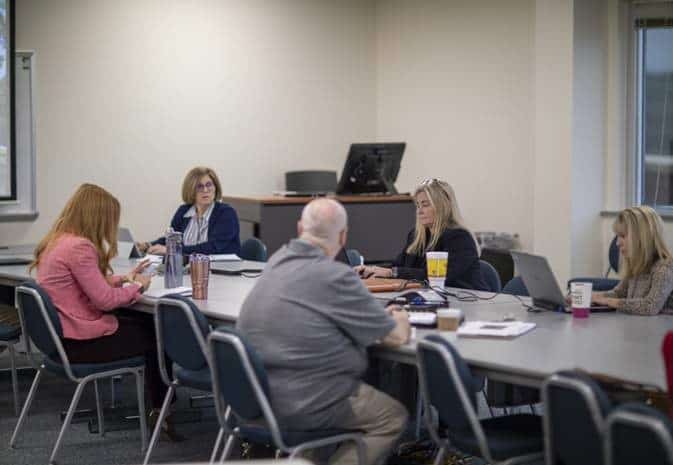
“There is already a tremendous amount of research out there about loneliness and social isolation,” said President Janet Spriggs in a press release. “Scenarios like this make that even more challenging to combat.”
For Forsyth Tech, the transition ahead ranges from teaching in classrooms to remote learning to the greater basic issues facing so many students.
“I worry about our students who are hearing daunting news and feeling more and more overwhelmed by the state of our world,” said Spriggs. “Our student population, in normal times and more so now, faces numerous challenges that are not academic-related, that are barriers to their success in the classroom as well as their daily lives. We want our students to be successful but realize that we need to care for the whole person and not just what happens in the classroom.”
One goal is at the forefront for this college — to provide the best for the students and to show them Forsyth Tech cares.
The college launched a new initiative to help students and employees make it through this crisis together. Forsyth Tech Cares is a new comprehensive approach for connecting students, staff, and faculty to the resources and support services they need from answering questions, to connecting those in need to emergency financial assistance, to making sure everyone is doing okay mentally and emotionally.
“When it comes right down to it, we know these are incredibly difficult times for all of us. But community colleges are the best at caring for our students, faculty and staff as family. We are used to rallying around the needs of everyone….when one of us hurts, we all share that pain,” said Spriggs. “I am optimistic because I already see us coming together, thinking differently and creatively, and being willing to do whatever it takes to love and serve our students and each other.”
The college has formed a task force of interested staff and faculty, and especially those who cannot work remotely in their current jobs, to become student advocates, calling each student to have a two-way conversation to show them Forsyth Tech Cares and to find out how the college can help them weather the COVID-19 storm.
A key element of the Forsyth Tech Cares initiative is that personal, live connection with each student every week. This means that a real live person is going to personally check in with them. It is a proactive way to not only connect them to resources, but to reach out and touch them person-to-person.
“We will ask about concerns about distance education, how are they are handling the stress, if there are any social services to which we can connect them, if they need emergency help from the Forsyth Tech Foundation, and answer any questions about the changes to their classes,” said Masonne Sawyer, vice president of student success services at Forsyth Tech. “We truly hope that we can protect our students from suffering academically due to challenges over which they have no control.”



